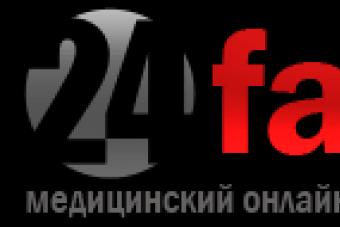Many of the readers are entrepreneurs and know that such activity can both enrich and ruin. In civil law, private business is interpreted in this way - an activity based on risk, the purpose of which is to make a profit. There are hundreds of types of entrepreneurship - in the first place, of course, trading activities, followed by construction, real estate, etc. Approximately the same number of types of illegal business activities, fines and other liability for which is provided for by the legislation of the Russian Federation.
The concept of entrepreneurship
In Russia, this term is defined using the following features:
All of the above features are typical for commercial activities. In addition, there are additional features that are mentioned in the clarifications of the Supreme Court and the Office of the Tax Service of the Russian Federation: maintaining documentation on transactions that have taken place, as well as on the overall work of an individual entrepreneur, the existence of a relationship between transactions and counterparties, etc.
Illegal business
The legislation of Russia prohibits conducting illegal business activities, for which both administrative (in the form of a fine) and criminal liability are provided. There will be a discrepancy with the law if such activity:
- carried out without registration;
- carried out without a state license.
Without registering
This means that you have not submitted information about yourself as an individual entrepreneur to the tax office, and at the same time you are actively engaged in commercial activities to make a profit.
Under the signs of illegality, such actions of a businessman may also fall, which were initially registered in accordance with the requirements of the law, but then the registration was terminated (upon an application, in connection with a court decision, etc.).
Example #2. Rakitin P.E. has been engaged in commercial activities for a long time (furniture production and subsequent sale), he registered an IP several years ago. In view of the onset of the economic crisis, Raktinin P.E. decided to stop production and filed an application for exclusion from the register of entrepreneurs, which was done. A few months later, Rakitin P.E. decided to resume production, hired workers, set up machines, restored ties with suppliers and buyers, but did not register again as an individual entrepreneur in the prescribed manner. In this case, there are grounds for holding Rakitin liable for illegal business.
In rare cases, such actions of a private trader are also recognized as illegal when registration is available, but it was carried out illegally. In such situations, the falsity of the documents submitted for registration is revealed, on the basis of which an entry in the register was erroneously made.
Example #3. Konovalov E.N. submitted documents for registration of an individual entrepreneur, among which was an application indicating the OKVED code for retail trade. Based on the submitted Konovalov E.N. documents, an entry was made on its registration as an individual entrepreneur in the register. Later it was established that in fact Konovalov E.N. conducted wholesale trade, while he was not registered as an individual entrepreneur. Konovalov's actions were regarded as illegal business.
Based on the clarifications of the Supreme Court of the Russian Federation, it follows that the actions of a citizen who initially acquired a certain thing, object, real estate for personal use, and subsequently entered into a lease agreement (even for a long term), will not be considered illegal entrepreneurship, since the property belonging to him was not useful.
Example #4. Nikeshina R.G. I bought a one-room apartment in which I lived. A year later, she got married and moved in with her husband, and began to rent out her apartment to replenish the family budget. In this case, in the actions of Nikeshina R.G. there are no violations, since the originally purchased apartment was intended for personal use. However, if Nikeshina R.G. does not report for additional income and does not pay 13% of it, then there may be questions from the tax inspectorate, up to criminal liability under Art. 198 of the Criminal Code of the Russian Federation.
Without a license
In some cases, provided by law, for the legal activities of an individual entrepreneur, registration alone is not enough, you need to obtain a license.
So, in accordance with Federal Law FZ-99 dated May 4, 2011 “On Licensing Certain Types of Activities”, a license must be obtained:
- for the production of alcohol-containing products;
- for the activities of credit institutions;
- non-state pension funds;
- joint-stock investment funds;
- insurance activities;
- private security activities;
- for entrepreneurial activities in the management of apartment buildings, etc.
The absence of a license in those cases that are reflected in the FZ-99 list entails liability for illegal business activities for individual entrepreneurs.
Example #5. Leonova A.P., who has a higher pedagogical education in the field of foreign languages, opened an educational center at her place of residence, while she was registered as an individual entrepreneur with the purpose of activity - “provision of other types of services”. During the audit conducted by the tax authorities, it was found that, in violation of the requirements of the law "On Licensing", Leonova A.P. did not receive a license for educational activities in accordance with the established procedure, which was the basis for bringing her to justice.
Violation will also occur in cases where the entrepreneur continues to operate, but:
- the previously obtained license has been cancelled;
- an application for a license has already been submitted to the licensing authority, but a decision has not yet been made (or a refusal to issue followed);
- if the permit has expired.
When an entrepreneur has a license for a certain type of activity and at the same time is engaged in another type, for which a special permit is also required, such entrepreneurship will also be considered not in accordance with the law.
Example #6. Dorin G.O. for many years he was engaged in private medical practice under a license obtained by him in the Ministry of Health of the region. After many years of work, he also began to engage in pharmaceutical activities, however, in violation of the requirements of federal law, he did not receive a license for this type, and was held liable in the form of a fine for illegal business activities.
Administrative responsibility
The decision to bring to administrative responsibility Article 14.1 of the Code of Administrative Offenses of the Russian Federation shall be issued by the justice of the peace of the judicial district in whose territory the offense was recorded.
How is a crime detected? With an inspection at the request of citizens or on their own initiative, an entrepreneur can be visited by a representative of the tax inspectorate, the police, the state inspectorate for trade, etc. These officials draw up a protocol, which reflects all the violations that have been recorded.
After the protocol is drawn up, a person can be held administratively liable within two months, after which the proceedings on the material are terminated. According to part 1 of Art. 14.1 of the Code of Administrative Offenses of the Russian Federation for illegal entrepreneurial activity without registration is provided fine from 500 to 2000 rubles.
The verification may also consist in conducting a test purchase, the result of which will be significant, indisputable evidence of guilt. Typically, test purchases are used by the police to detect illegal business without a license, often in the sale of alcoholic beverages. In such cases, liability arises under Part 2 of Art. 14.1 of the Code of Administrative Offenses of the Russian Federation, where the punishment may be in the form of a fine from 2000 to 2500 rubles with or without confiscation of manufactured products.
Example #7. The police received a message about the illegal business activities of IP Rasulov A.A., who traded in products in his own store, located in a residential area of the city. From a resident of the house, on the ground floor of which there was a shop, there were complaints that Rasulov did not have a license to sell alcoholic beverages. At the same time, as follows from the complaints, at night he sells vodka and beer to people who immediately consume purchased drinks in the courtyards of residential buildings. During the test purchase, the fact of selling alcohol in the absence of a license was confirmed, a protocol was drawn up under Part 2 of Art. 14.2 of the Code of Administrative Offenses of the Russian Federation. Subsequently, Rasulov A.A. imposed a fine of 2500 rubles.
Part 3 of Art. 14.1 of the Code of Administrative Offenses of the Russian Federation provides for punishment in the form of a fine up to 2000 rubles for illegal business when there are violations of the terms of the license. If such violations are recognized as gross, then punishment is imposed under part 4 of the specified article of the Code of Administrative Offenses of the Russian Federation (fine up to 8000 rubles). For each type of activity, the Decree of the Government of the Russian Federation establishes individual criteria according to which this or that violation of the conditions can be attributed to a number of gross ones.
Example #8. Markin E.P. registered as an entrepreneur, he was issued a license to carry out transportation by road, equipped to accommodate more than 8 people. Markin E.P. challenged in court bringing him to justice under Part 4 of Art. 14.1 of the Code of Administrative Offenses of the Russian Federation, believing that the lack of equipment for checking the technical serviceability of cars is not a gross violation, he did not agree with the fine of 8,000 rubles imposed on him. Contrary to the arguments of Markin E.P., the court recognized the protocol drawn up against him under Part 4 of Art. 14.1 of the Code of Administrative Offenses of the Russian Federation, since paragraph 5 of the Regulation on Licensing Transportation approved by the Government of the Russian Federation, the repeated absence of equipment and premises for car repair during the year is considered a gross violation.
Responsibility under the Criminal Code of the Russian Federation
For criminal liability for illegal business, one of the mandatory features, according to Art. 171 of the Criminal Code of the Russian Federation, is the infliction of large damage - that is, in excess of 2 million 250 thousand rubles. Damage can be caused to both citizens and any organizations, as well as the state.
As an alternative sign, which may be instead of "causing major damage", "deriving income" in a similar amount is provided.
Example #9. Kolaev G.E. carried out private security activities as an individual entrepreneur in the presence of an expired license. He was prosecuted for committing a crime under Part 1 of Art. 171 of the Criminal Code of the Russian Federation, but he appealed against the guilty verdict due to disagreement with the accusation - he believed that he had not caused harm to anyone. As a result of the appeal hearing of the case, the verdict was left unchanged, since his income from illegal activities for 2019 amounted to 3,500,000 rubles, that is, exceeded 2,250,000 rubles, and the presence of the sign of “causing major damage” is not required here.
It should be noted that when recalculating income, according to the clarifications of the Supreme Court of the Russian Federation, the proceeds received by the entrepreneur without taking into account expenses and expenses, as well as taxes, are taken into account.
According to part 1 of Art. 171 of the Criminal Code of the Russian Federation for illegal entrepreneurship (both without registration and without a license or in violation of the terms of a license) threatens fine up to 300,000 rubles or compulsory work up to 480 hours.
If there are additional signs (part 2 of article 171 of the Criminal Code of the Russian Federation), the punishment for illegal business activities can be in the form of:
- fine up to 500000 rubles;
- imprisonment up to 5 years with a fine of up to 80,000 rubles or without it.
Such additional (qualifying) features may be:
- commission of a crime by an organized group - when several criminals have united in order to carry out entrepreneurial activities illegally, while roles are clearly distributed between them, each receives a part of the income, etc.
- if the income received as a result of criminal activity is especially large, that is, it exceeds 9 million rubles.
Aggregate with other crimes
Often, along with illegal entrepreneurial activity, there are other offenses in the actions of the perpetrator, for example:
- the use of someone else's trademark or name, various product designations belonging to another organization - then the actions are additionally qualified under Art. 180 of the Criminal Code of the Russian Federation;
- production, storage, transportation or sale of goods without excise marking, if it is mandatory in accordance with the law - there will be an additional qualification under Art. 181 of the Criminal Code of the Russian Federation;
- if a product is sold that does not meet the safety requirements of citizens, then additionally the actions of the violator will be qualified under Art. 238 of the Criminal Code of the Russian Federation.
Usually the goal of illegal business is tax evasion. Meanwhile, if an individual entrepreneur conducts illegal activities, additionally qualify his actions under Art. 198 of the Criminal Code of the Russian Federation (non-payment of taxes) is impossible. During the investigation, all income derived by the guilty will be recognized as material evidence in the framework of a criminal case under Art. 171 of the Criminal Code of the Russian Federation and, in the event of a guilty verdict, everything will be turned into state revenue.
If an entrepreneur has carried out such criminal activities as the sale of weapons, the manufacture of psychotropic substances, etc., then these actions are fully covered by specific articles of the criminal law, without Art. 171 of the Criminal Code of the Russian Federation.
Results
So, you should know about liability for illegal entrepreneurship under Article 171 of the Criminal Code of the Russian Federation:
- it occurs as a result of a person carrying out permanent activities aimed at systematically extracting profits without state registration, without a license or in violation of licensing conditions, if such actions caused damage to citizens in the amount of more than 2,250,000 rubles, or income was generated for this amount (if less than 2,250,000 - liability arises according to article 14.1 of the Code of Administrative Offenses of the Russian Federation);
- both an entrepreneur and a person who actually conducts such activities, but does not have state registration, as well as the head of a legal organization whose activities are not registered, can be involved as an accused;
- any regulatory authorities, as well as the police and the prosecutor's office, can conduct an inspection and identify violations, where you can write a complaint, if necessary, declare the fact of illegal business;
- the maximum punishment provided for by Article 171 of the Criminal Code of the Russian Federation is imprisonment for up to 5 years.
Many people have a question: "What is illegal business. How to qualify it, according to what criteria? What is the responsibility for business without registration?"
Any of us at least once had to make deals, do some work. Often they are of a personal, private nature, are isolated and of no interest to official bodies. But other deals, contracts are concluded constantly and bring regular income. These are the deals that can arouse the curiosity of the tax.
For example, if you bought a plot of land, and then, after a while, sold it and at the same time made a profit, then this is not illegal business, because deal was a one off, concluded between individuals and therefore does not fall under the category of entrepreneurial activity.
But if a person is regularly engaged in the purchase of land (as well as equipment, cars, etc.) for the purpose of resale and profit, then such a person is an entrepreneur. Moreover, if he is not registered in the manner prescribed by law, has not received a license (if required), then the entrepreneur is illegal.
Some "entrepreneurs" deliberately evade tax evasion, while others do not even realize that their activities fall under the definition of entrepreneurship, which means that a person must. Entrepreneurial activity can be different: renting out premises, training, mass and soot, repairing equipment, providing various kinds of consultations, tailoring, developing souvenirs, design services, creating websites, etc.
Often people who are engaged in entrepreneurial activities consider themselves so-called freelancers. Usually, they are paid for the work performed either "in a black way", without any contracts, or under work contracts, i.e. taxes, as they are paid for by the company for which they wrote an advertising article, made a translation, or provided any other one-time service. Therefore, if a person’s activity is episodic and the income is very modest, such work is your own business.
Note: The sale of personal belongings, the performance of minor work and assignments from time to time does not entail either administrative or criminal liability. This also does not apply to a one-time rental of your apartment.
The difference between entrepreneurial activity and freelancing lies in the fact that it is built on a permanent professional basis and its main goal is to make a profit. If you have made a large profit from the sale of your own property, this is not considered entrepreneurship. In other cases, when there is independence, the implementation of work on an ongoing basis in order to generate income, and there is no registration, you can make trouble.
Penalties for illegal business want to increase
It is proposed to increase fine for illegal business, setting its size from 3 to 5 thousand rubles.
SIGNS OF ILLEGAL BUSINESS ACTIVITIES
- independence of economic activity and its implementation at one's own risk;
- systematic profit as the goal of activity;
- use of property, sale of goods, performance of work or provision of services as sources of profit.
At the same time, the signs of entrepreneurial activity must be distinguished from the forms of illegal entrepreneurial activity enshrined in the disposition of Article 171 of the Criminal Code of the Russian Federation.
Autonomy of economic activity implies, first of all, that an individual or legal entity - an entrepreneur participates in civil circulation directly, on his own behalf, by his own will and in his own interest.
Therefore, economic activity, devoid of independence, cannot be considered as entrepreneurial. It's already labor relations between employee and employer. And such activities are most often legally formalized by an employment contract, even if not properly executed. The employment contract is different from ( characteristic of entrepreneurship) with its subject.
The subject of the employment contract is "the living labor of the worker itself". Accordingly, in labor relations, the employee becomes subordinate to the employer, disciplinary relations arise, the work of the employee is organized by the employer, who appropriates income and bears the commercial risk of losses from entrepreneurial activity.
THREE FORMS of illegal business:
- without state registration,
- without a license
- in violation of the license.
Even if you legally registered as an individual entrepreneur, but did not receive a license for the activity that requires, you are also working illegally, i.e. you are an illegal business. Moreover, it must be remembered that each type of activity may require a separate license, and if you do not have one, you are engaged in illegal business activities. This is also worth considering.
Note: For example, having opened a treatment center, you should not sell medicines until you receive a separate document.
Criminal, administrative or tax LIABILITY
It occurs if the actions of the entrepreneur caused serious damage to citizens, organizations or the state, or a large amount of income was generated (i.e., more than 1 million 500 thousand rubles).
Note: Note to paragraph 2 of Art. 169 of the Criminal Code of the Russian Federation.
In other cases, the perpetrators are administrative responsibility in the form of fines. As a punishment, Art. 171 of the Criminal Code of the Russian Federation provides for a fine (in the amount of up to 300 thousand rubles or in the amount of wages or other income of the convicted person for a period of up to two years), compulsory work up to 480 hours) or arrest for up to six months.
For example, you decide to make a lot of money by reselling some expensive product (car, land, building materials, etc.). In one case, such a transaction may, due to its singularity, be excluded from the definition of entrepreneurial activity, in the other, due to the receipt of a rather large income, it can be attributed to illegal entrepreneurship.
Tax liability for illegal business
In the Tax Code of the Russian Federation, liability for activities without registration is provided for in two articles at once:. For evading registration with the inspection, a fine of 10 percent of the income received, but not less than 40 thousand rubles, is threatened.
In this article, we will consider the types of illegal business, and also find out what kind of responsibility is provided for these crimes. But first, let's deal with the normative act, which formulates the very concept of "entrepreneurial activity".
Entrepreneurial activity in accordance with the Civil Code of the Russian Federation
So, in relation to the legislation of the Russian Federation, the definition of entrepreneurial activity is formulated in Article 2, Clause 1 of the Civil Code:
“Entrepreneurship is an independent activity carried out at one’s own risk, aimed at systematically obtaining profit from the use of property, the sale of goods, the performance of work or the provision of services by persons registered in this capacity in the manner prescribed by law.”
In this definition, pay attention to the following key phrases:
- Independent activity.
- Systematic profit.
- Persons registered in the manner prescribed by law.
The state assumes that business activities carried out within its borders will be carried out legally, but in practice this is far from being the case. The concept of legal entrepreneurial activity is reflected in the Civil Code of the Russian Federation (clause 1, article 2). In addition, it also lists the legal provisions that establish the foundations for running a legitimate business: the age of the person from which he can officially register as an individual entrepreneur (Article 21), the rights and obligations of an individual entrepreneur (Article 23), etc.
Legal entrepreneurial activity is the activity of a business entity that, in accordance with the procedure established by the state, has been registered, carried out by it on a permanent basis and for the purpose of generating income. It follows from this that activity without registration or in any other way that does not comply with the requirements of the law is illegal business.
Signs and types of illegal business
Signs of illegal entrepreneurial activity, in the presence of which law enforcement agencies may be interested in the organization of work and the provision of services by a particular company:
- non-regular activities;
- excessive enrichment when it is impossible to explain and confirm the legitimacy of obtaining high incomes;
- lack of registration or obtaining it with violations of the law;
- lack of a license to operate in cases where its presence is mandatory;
- the use of labor of third parties without the appropriate formalization of labor relations and the payment of wages with deductions to state funds.
Illegal participation in entrepreneurial activity can be carried out in the following ways:
- Carrying out activities without prior registration of the entity with the tax authorities. The law establishes that such registration allows you to protect the rights of consumers, replenish the treasury through deductions and taxes, and also control the legality of the activities carried out.
- Carrying out activities that go beyond that for which the business was opened. When registering a subject, the registration documents must indicate the type of activity for which the legal entity is registered. Violation will be considered intentional or unintentional non-compliance with permitted boundaries and license requirements.
- Carrying out activities without a license in the event that obtaining such a permit is considered mandatory by law. There are certain types of activities that are subject to licensing. Obtaining a license confirms that the subject has passed an additional check in the area that requires closer control by the state (medicine, investments, insurance, international transportation, etc.).
- Fictitious business is an illegal commercial activity carried out for the purpose of laundering proceeds from crime or for the purpose of evading tax obligations. The main sign of fictitious entrepreneurship is the presence of direct intent, i.e. a person knows perfectly well that he is acting outside the law, but continues to do so in order to derive his own benefits.

The subject of illegal commercial activity can be both an individual and a legal entity, including non-profit organizations and political parties, which, in principle, are prohibited by law from engaging in such activities. A special subject is an organized group, the creation of which always entails criminal liability.
Criminal liability (Article 171 of the Criminal Code of the Russian Federation)
Illegal entrepreneurial activity entails negative consequences for the entity carrying it out, including criminal liability in case of revealing serious violations of the law.
The corpus delicti (Article 171 of the Criminal Code of the Russian Federation) presupposes the occurrence of certain consequences, i.e. a person will be punished under criminal law only if the damage caused by such actions is recognized as large.
The article of the Criminal Code of the Russian Federation is divided into two parts:
- Part 1 establishes liability in the event that an entity carries out activities without registration or a compulsory license.
- Part 2 establishes liability for similar actions, but committed by an organized group or causing damage on an especially large scale.
Other penalties
In the event that the illegal implementation of entrepreneurial activity did not entail serious consequences that provide for criminal liability, legal entities and entrepreneurs may be held liable for other types of liability established by the administrative or tax code.
In accordance with the Tax Code of the Russian Federation (Article 116), in the case when an entrepreneur or officials of an organization do not submit documents for registration in a timely manner (registration delay), the tax authorities may impose. A similar punishment may follow in the case when there is an activity without registration, but with a small income.
In the event that a business entity, in the course of carrying out its illegal business activities, violates other norms of the law, it will have to bear liability in the aggregate, i.e. under article 171 of the Criminal Code of the Russian Federation or article 14.1 of the Code of Administrative Offenses of the Russian Federation plus under another article providing for liability for committing another crime. For example, a legal entity has been created to engage in medical activities, but a license has not been obtained (Article 171 of the Criminal Code of the Russian Federation). In the course of their activities, the staff disclosed medical confidentiality, i.e. certain important information became public, which provides for liability under Art. 137 of the Criminal Code of the Russian Federation. In this case, the responsibility will come on the totality of crimes.
Case Studies
Example 1
Citizen K. for a long time traded seasonal fruits and vegetables at one of the high-rise buildings in a residential area, but at the same time he did not have registration as an individual entrepreneur, and, therefore, he did not pay taxes. When this fact was established, K. was liable under Article 14.1 of the Code of Administrative Offenses of the Russian Federation for doing business without registration, which did not cause major damage. As evidence of illegal business, testimonies were obtained from persons who periodically bought fruits and vegetables from K., booklets and leaflets about the sale of products were attached, which K. hung around the district in order to increase sales, documents and explanations were obtained from persons where K. purchased products that are subsequently sold.
Example 2
Citizen E. has a higher pedagogical education and has provided tutoring services in foreign languages for a long time. It was registered as an individual entrepreneur, where it indicated the type of activity “other types of services”. After some time, E. opened her educational center and continued her practice. When checking its activities, the tax authorities found violations of the Federal Law "On Licensing", tk. The legislation provides for the obligatory obtaining of a license for educational activities. Depending on the amount of income received, citizen E. will be held criminally or administratively liable.
If you have any questions about the topic of the article - ask them in the comments
Many people have a question: "What is illegal business. How to qualify it, according to what criteria? What is the responsibility for business without registration?"
Any of us at least once had to make deals, do some work. Often they are of a personal, private nature, are isolated and of no interest to official bodies. But other deals, contracts are concluded constantly and bring regular income. These are the deals that can arouse the curiosity of the tax.
For example, if you bought a plot of land, and then, after a while, sold it and at the same time made a profit, then this is not illegal business, because deal was a one off, concluded between individuals and therefore does not fall under the category of entrepreneurial activity.
But if a person is regularly engaged in the purchase of land (as well as equipment, cars, etc.) for the purpose of resale and profit, then such a person is an entrepreneur. Moreover, if he is not registered in the manner prescribed by law, has not received a license (if required), then the entrepreneur is illegal.
Some "entrepreneurs" deliberately evade tax evasion, while others do not even realize that their activities fall under the definition of entrepreneurship, which means that a person must. Entrepreneurial activity can be different: renting out premises, training, mass and soot, repairing equipment, providing various kinds of consultations, tailoring, developing souvenirs, design services, creating websites, etc.
Often people who are engaged in entrepreneurial activities consider themselves so-called freelancers. Usually, they are paid for the work performed either "in a black way", without any contracts, or under work contracts, i.e. taxes, as they are paid for by the company for which they wrote an advertising article, made a translation, or provided any other one-time service. Therefore, if a person’s activity is episodic and the income is very modest, such work is your own business.
Note: The sale of personal belongings, the performance of minor work and assignments from time to time does not entail either administrative or criminal liability. This also does not apply to a one-time rental of your apartment.
The difference between entrepreneurial activity and freelancing lies in the fact that it is built on a permanent professional basis and its main goal is to make a profit. If you have made a large profit from the sale of your own property, this is not considered entrepreneurship. In other cases, when there is independence, the implementation of work on an ongoing basis in order to generate income, and there is no registration, you can make trouble.
Penalties for illegal business want to increase
It is proposed to increase fine for illegal business, setting its size from 3 to 5 thousand rubles.
SIGNS OF ILLEGAL BUSINESS ACTIVITIES
- independence of economic activity and its implementation at one's own risk;
- systematic profit as the goal of activity;
- use of property, sale of goods, performance of work or provision of services as sources of profit.
At the same time, the signs of entrepreneurial activity must be distinguished from the forms of illegal entrepreneurial activity enshrined in the disposition of Article 171 of the Criminal Code of the Russian Federation.
Autonomy of economic activity implies, first of all, that an individual or legal entity - an entrepreneur participates in civil circulation directly, on his own behalf, by his own will and in his own interest.
Therefore, economic activity, devoid of independence, cannot be considered as entrepreneurial. It's already labor relations between employee and employer. And such activities are most often legally formalized by an employment contract, even if not properly executed. The employment contract is different from ( characteristic of entrepreneurship) with its subject.
The subject of the employment contract is "the living labor of the worker itself". Accordingly, in labor relations, the employee becomes subordinate to the employer, disciplinary relations arise, the work of the employee is organized by the employer, who appropriates income and bears the commercial risk of losses from entrepreneurial activity.
THREE FORMS of illegal business:
- without state registration,
- without a license
- in violation of the license.
Even if you legally registered as an individual entrepreneur, but did not receive a license for the activity that requires, you are also working illegally, i.e. you are an illegal business. Moreover, it must be remembered that each type of activity may require a separate license, and if you do not have one, you are engaged in illegal business activities. This is also worth considering.
Note: For example, having opened a treatment center, you should not sell medicines until you receive a separate document.
Criminal, administrative or tax LIABILITY
It occurs if the actions of the entrepreneur caused serious damage to citizens, organizations or the state, or a large amount of income was generated (i.e., more than 1 million 500 thousand rubles).
Note: Note to paragraph 2 of Art. 169 of the Criminal Code of the Russian Federation.
In other cases, the perpetrators are administrative responsibility in the form of fines. As a punishment, Art. 171 of the Criminal Code of the Russian Federation provides for a fine (in the amount of up to 300 thousand rubles or in the amount of wages or other income of the convicted person for a period of up to two years), compulsory work up to 480 hours) or arrest for up to six months.
For example, you decide to make a lot of money by reselling some expensive product (car, land, building materials, etc.). In one case, such a transaction may, due to its singularity, be excluded from the definition of entrepreneurial activity, in the other, due to the receipt of a rather large income, it can be attributed to illegal entrepreneurship.
Tax liability for illegal business
In the Tax Code of the Russian Federation, liability for activities without registration is provided for in two articles at once:. For evading registration with the inspection, a fine of 10 percent of the income received, but not less than 40 thousand rubles, is threatened.





